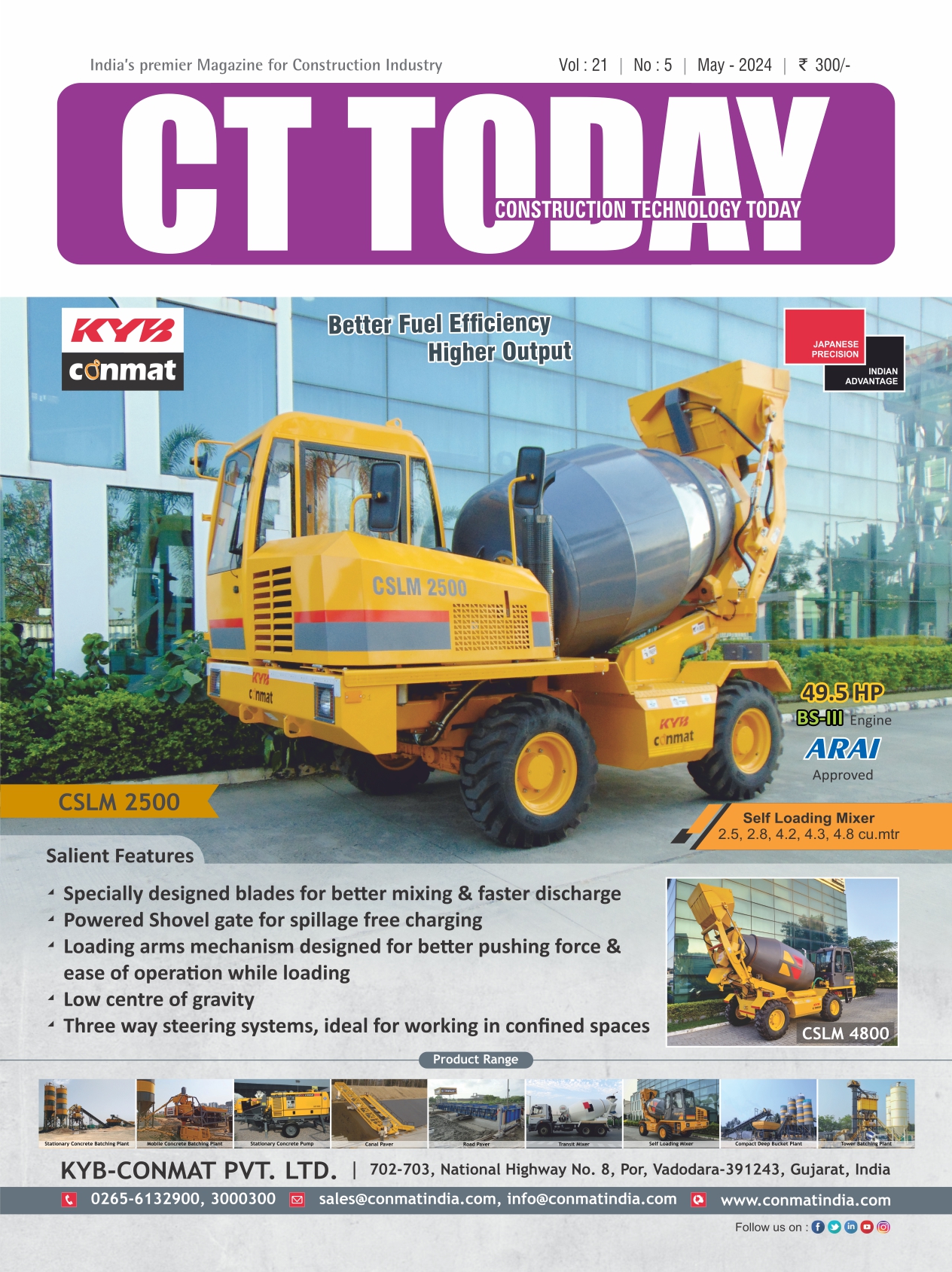Mr.
Puneet Vidyarthi, Head of Marketing and Business Development, India & SAARC
– CASE Construction Equipment
How
are technological advancements like GPS integration and telematics shaping the
role of motor graders in India's infrastructure projects?
The adoption of key
technologies is steadily increasing and has potential to revolutionize India's
infrastructure development efforts in the years to come, despite the existing
challenges such as initial costs and technological literacy. GPS integration
help motor graders achieve unprecedented precision in terrain mapping and
grading, significantly reducing errors and optimizing efficiency. This
precision translates into substantial time and cost savings, crucial in India's
fast-paced infrastructure development landscape. Telematics technology enables
real-time monitoring of motor graders, enhancing safety by tracking equipment
performance and operator behaviour. Moreover, the data collected through
telematics facilitates data-driven decision-making, enabling better project management
and resource allocation. Globally, we have also seen industry players adopting
technologies like Automation, SmartGrade, among others, to boost the
performance of the motor graders.
At CASE, our motor graders
are equipped with SiteWatch telematics and also integrated with GPS technology
as a standard feature, facilitating efficient resource allocation by
identifying spare units or underutilized machines across construction sites.
Telematics technology enables precise planning based on actual machine hours
and timely service alerts. Furthermore, GPS integration and advanced machine
control systems ensure accurate grading and levelling, minimizing manual
intervention in our grader machines. Our graders feature remote diagnostics,
monitoring systems, and a trip meter for tracking fuel usage, operating hours,
and temperatures. They are renowned for versatility, as they ensure high
productivity and cost-effectiveness in construction projects.
How
are motor graders aiding rural development efforts by improving connectivity
and infrastructure in remote areas of India?
When discussing rural
development, the significance of road construction cannot be overstated. In
many cases, motor graders play a pivotal role in this process, particularly in
rural areas where the demand for them is highest. These machines are essential
for transforming uneven terrains into well-graded surfaces, facilitating
last-mile connectivity and enabling easier access to remote areas. This
enhanced connectivity not only improves the quality of life for residents but
also opens up new economic opportunities, contributing to a more balanced and
inclusive development across the country.
In line with the importance
of rural infrastructure development, there has been a significant increase in
fund allocation in this year's fiscal budget. Under initiatives like the
Pradhan Mantri Gram Sadak Yojana, funding for rural roads construction schemes
has seen a substantial rise. For instance, the allocation has increased from Rs
14,000 crore in the previous fiscal year (revised estimates) to Rs 19,000 crore
in the current year. This boost in funding underscores the government's
commitment to improving rural infrastructure and promoting connectivity in
remote areas.
At CASE, our motor graders
are designed to meet the demanding requirements of rural development projects.
Equipped with powerful engines featuring variable horsepower and heavy-duty
components such as auto transmission and hydraulics, our graders ensure
durability and reliability in any operating conditions. These features not only
aid in the development of rural infrastructure but also contribute to improving
connectivity across rural India, fostering balanced growth and inclusive
development.
What sets different motor grader models apart in terms of performance, efficiency, and suitability for specific tasks?
CASE Graders are designed
for user-friendliness, safety, engine reliability, and cost-efficiency,
incorporating advanced technology to boost efficiency while ensuring operator
safety. At CASE Construction, we produce a range of motor graders, such as the
C-series models like the 845C and 865C, with horsepower ranging from 150 HP to
220HP. This is a primary differentiator. Higher horsepower graders (like the
865C) are better suited for demanding tasks like heavy-duty excavation,
large-scale road construction, and severe terrain. These graders feature a
robust FPT 6.7L turbocharged engine and an intelligent hydraulic system with
load sensing, enhancing operator convenience and productivity. Operators can
adjust the mouldboard directly from the cabin, and the variable horsepower
output at 220 rpm offers versatility for various tasks, including rigorous
mining operations. The 845C model prioritises operator comfort with amenities
like an adjustable suspension vinyl seat, intuitive controls, and an electronic
information centre for essential data.
CASE India is committed to
expanding its product line-up to meet evolving horsepower requirements,
supporting the construction industry's growth.
With
motor grader demand linked to infrastructure projects and government policies,
how do you foresee the market responding to economic shifts and policy changes
in India?
The Off-Highway Research report indicates a consistent demand for motor graders, maintaining stability over time, with projections suggesting this trend will persist in the coming year. In India, amidst significant infrastructure development spurred by government initiatives, there is a growing anticipation for increased utilization of construction machinery. Motor graders are poised to play a crucial role in this scenario, particularly with the acceleration of road and highway construction projects. As ongoing ventures near completion and new infrastructure initiatives emerge, the focus on project execution is expected to drive growth in the motor grader segment, owing to their adaptability and effectiveness in diverse construction and mining environments.









